Books on consciousness
A list of books relating to the hard problem of consciousness. Regularly updated cos I keep finding new stuff all the time.
A list of books relating to the hard problem of consciousness. Regularly updated cos I keep finding new stuff all the time.
1991
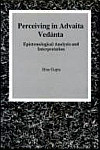 Bina Gupta
Bina Gupta
Perceiving in Advaita Vedānta: Epistemological Analysis and Interpretation
(Bucknell Univ. Press 1991)
Much attention has recently been paid to the divergent facets of the enduring Indian philosophical system known as Advaita Vedānta. Little attention, however, has been paid to its epistemology, especially its theory of the knowing and the known. This study explicates this two-tiered theory of knowledge and makes sense of the overarching unity that prevails over the duality and the division. See Google
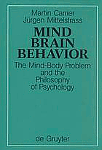 Martin Carrier & Jürgen Mittelstrass
Martin Carrier & Jürgen Mittelstrass
Mind, Brain, Behavior: The Mind-Body Problem and the Philosophy of Psychology
(de Gruyter 1991)
A new look at the mind-body problem using the instruments of modern philosophy of science. Since the best available theories of human behavior make use of concepts referring to mental or psychological phenomena, such phenomena should be taken as independent entities. In the light of this, it is argued that a pragmatic interactionist dualism is the best supported option. See Amazon | Google
 William Seager
William Seager
Metaphysics of Consciousness
(Routledge 1991)
This book opens with a development of the physicalist outlook that denies the need for any explanation of the mental. This "inexplicability" is demonstrated not to be sufficient as refutation of physicalism. However, the inescapable particularity of modes of consciousness appears to overpower this minimal physicalism. Seager proposes that such an inference requires either a wholly new conception of how consciousness is physical or a deep and disturbing new kind of physical inexplicability. See Amazon | Google
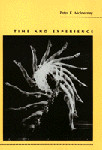 Peter K. McInerney
Peter K. McInerney
Time and Experience
(Temple U Press 1991)
The only contemporary, systematic study of time and conscious experience. Mclnerney examines how we are able to be conscious of time and temporal entities, whether time exists independently of conscious experience, and whether the conscious experiencer exists in time in the same way that ordinary natural objects are thought to do. Insight is drawn from phenomenological and existential thinkers. See Temple | Amazon | Google
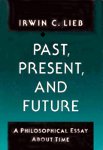 Irwin C. Lieb
Irwin C. Lieb
Past, Present, and Future: A Philosophical Essay about Time
(U. Illinois Press 1991)
The prevailing view in the history of philosophy has been that time is not basically real but has a derivative status. In contrast, Lieb establishes the thesis that time is a fundamental reality: it is individuals. See Amazon | Google
 F. Varela, E. Thompson & E. Rosch
F. Varela, E. Thompson & E. Rosch
The Embodied Mind
(MIT 1991)
A unique, sophisticated treatment of the spontaneous and reflective dimension of human experience. The authors argue that only by having a sense of common ground between mind in science and mind in experience can our understanding of cognition be more complete. They develop a dialogue between cognitive science and Buddhist meditative psychology and situate it in relation to other traditions such as phenomenology and psychoanalysis. See MIT Press | Google
 Julia Annas
Julia Annas
Hellenistic Philosophy of Mind
(Univ California Press 1991)
An elegant survey of Stoic and Epicurean ideas about the soul – an introduction to two ancient schools whose belief in the soul’s physicality offers compelling parallels to modern approaches in the philosophy of mind. In part, the Hellenistic epoch was a “scientific” period that broke with tradition in ways analogous to the modern shift from the 17th and 18th centuries to the present day. Hellenistic philosophy of the soul, Annas argues, is in fact a philosophy of mind. See Univ California Press | Amazon | Google
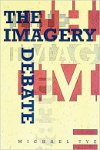 Michael Tye
Michael Tye
The Imagery Debate
(MIT 1991)
Tye untangles the complex web of empirical and conceptual issues of the newly-revived imagery debate in psychology between those that liken mental images to pictures and those that liken them to linguistic descriptions. He also takes into account longstanding philosophical issues to arrive at a comprehensive and original theory that provides answers to questions raised in both psychology and philosophy. See MIT | Google
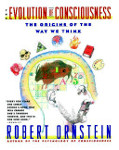 Robert Ornstein
Robert Ornstein
The Evolution of Consciousness
(Prentice Hall 1991)
Based on his life’s research, the author of the 1972 bestseller The Psychology of Consciousness provides a provocative look at the evolution of the mind. He explains that we are not rational but adaptive, and that it is Darwin, not Freud, who is the central scientist of the brain. Photographs and line art throughout. See Amazon | Google
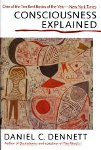 Daniel Dennett
Daniel Dennett
Consciousness Explained
(Little Brown & Company 1991)
Dennett revises the traditional view of consciousness by claiming that Cartesianism and Descartes’ dualism of mind and body should be replaced with theories from the realms of neuroscience, psychology and artificial intelligence. What people think of as the stream of consciousness is not a single, unified sequence, he argues, but “multiple drafts” of reality composed by a computer-like “virtual machine.” See Amazon
 David Hodgson
David Hodgson
The Mind Matters: Consciousness and Choice in a Quantum World
(Oxford 1991)
Hodgson presents a case against orthodox mechanistic views of the brain-mind, in favour of the view that “mind matters.” Without invoking a “ghost in the machine,” Hodgson offers plausible conjectures as to how there can be a free-willing conscious mind operating in association with the physical brain. Largely non-technical and accessible to the non-specialist reader. See Oxford | Google
 John Foster
John Foster
The Immaterial Self: A Defence of the Cartesian Dualist Conception of the Mind
(Routledge 1991)
Dualism argues that the mind is more than just the brain. It posits two different realms, one mental and the other physical, both fundamental and neither reducible to the other. Foster examines and defends the most famous dualist account of the mind, the Cartesian, which attributes the immaterial contents of the mind to an immaterial self. Ambitious and controversial, this is possibly the best defence of Cartesian dualism since Descartes’ own. See Routledge | Google
 Colin McGinn
Colin McGinn
The Problem of Consciousness
(Wiley 1991)
Can consciousness be fitted into a naturalistic worldview or is it inherently mysterious? In virtue of what does a physical organism come to have an inner conscious life? McGinn argues that we are not equipped to understand the workings of conciousness, despite its objective naturalness. Introspection does not reveal the hidden structure of consciousness which joins experience to the material world. See Wiley | Google | Amazon
 Christopher S. Hill
Christopher S. Hill
Sensations: A Defense of Type Materialism
(Cambridge 1991)
A book about sensory states and their apparent characteristics. It presents an argument for type materialism: the view that sensory states are identical with the neural states with which they are correlated. Hill rebuts several other rival theories (dualism, double aspect theory, eliminative materialism, functionalism), and explores a number of important issues: the forms and limits of introspective awareness of sensations, the semantic properties of sensory concepts, knowledge of other minds, and the unity of consciousness. See Cambridge | Amazon | Google

Perceiving in Advaita Vedānta: Epistemological Analysis and Interpretation
(Bucknell Univ. Press 1991)
Much attention has recently been paid to the divergent facets of the enduring Indian philosophical system known as Advaita Vedānta. Little attention, however, has been paid to its epistemology, especially its theory of the knowing and the known. This study explicates this two-tiered theory of knowledge and makes sense of the overarching unity that prevails over the duality and the division. See Google

Mind, Brain, Behavior: The Mind-Body Problem and the Philosophy of Psychology
(de Gruyter 1991)
A new look at the mind-body problem using the instruments of modern philosophy of science. Since the best available theories of human behavior make use of concepts referring to mental or psychological phenomena, such phenomena should be taken as independent entities. In the light of this, it is argued that a pragmatic interactionist dualism is the best supported option. See Amazon | Google

Metaphysics of Consciousness
(Routledge 1991)
This book opens with a development of the physicalist outlook that denies the need for any explanation of the mental. This "inexplicability" is demonstrated not to be sufficient as refutation of physicalism. However, the inescapable particularity of modes of consciousness appears to overpower this minimal physicalism. Seager proposes that such an inference requires either a wholly new conception of how consciousness is physical or a deep and disturbing new kind of physical inexplicability. See Amazon | Google

Time and Experience
(Temple U Press 1991)

The only contemporary, systematic study of time and conscious experience. Mclnerney examines how we are able to be conscious of time and temporal entities, whether time exists independently of conscious experience, and whether the conscious experiencer exists in time in the same way that ordinary natural objects are thought to do. Insight is drawn from phenomenological and existential thinkers. See Temple | Amazon | Google

Past, Present, and Future: A Philosophical Essay about Time
(U. Illinois Press 1991)
The prevailing view in the history of philosophy has been that time is not basically real but has a derivative status. In contrast, Lieb establishes the thesis that time is a fundamental reality: it is individuals. See Amazon | Google

The Embodied Mind
(MIT 1991)

A unique, sophisticated treatment of the spontaneous and reflective dimension of human experience. The authors argue that only by having a sense of common ground between mind in science and mind in experience can our understanding of cognition be more complete. They develop a dialogue between cognitive science and Buddhist meditative psychology and situate it in relation to other traditions such as phenomenology and psychoanalysis. See MIT Press | Google

Hellenistic Philosophy of Mind
(Univ California Press 1991)
An elegant survey of Stoic and Epicurean ideas about the soul – an introduction to two ancient schools whose belief in the soul’s physicality offers compelling parallels to modern approaches in the philosophy of mind. In part, the Hellenistic epoch was a “scientific” period that broke with tradition in ways analogous to the modern shift from the 17th and 18th centuries to the present day. Hellenistic philosophy of the soul, Annas argues, is in fact a philosophy of mind. See Univ California Press | Amazon | Google

The Imagery Debate
(MIT 1991)

Tye untangles the complex web of empirical and conceptual issues of the newly-revived imagery debate in psychology between those that liken mental images to pictures and those that liken them to linguistic descriptions. He also takes into account longstanding philosophical issues to arrive at a comprehensive and original theory that provides answers to questions raised in both psychology and philosophy. See MIT | Google

The Evolution of Consciousness
(Prentice Hall 1991)
Based on his life’s research, the author of the 1972 bestseller The Psychology of Consciousness provides a provocative look at the evolution of the mind. He explains that we are not rational but adaptive, and that it is Darwin, not Freud, who is the central scientist of the brain. Photographs and line art throughout. See Amazon | Google

Consciousness Explained
(Little Brown & Company 1991)
Dennett revises the traditional view of consciousness by claiming that Cartesianism and Descartes’ dualism of mind and body should be replaced with theories from the realms of neuroscience, psychology and artificial intelligence. What people think of as the stream of consciousness is not a single, unified sequence, he argues, but “multiple drafts” of reality composed by a computer-like “virtual machine.” See Amazon

The Mind Matters: Consciousness and Choice in a Quantum World
(Oxford 1991)
Hodgson presents a case against orthodox mechanistic views of the brain-mind, in favour of the view that “mind matters.” Without invoking a “ghost in the machine,” Hodgson offers plausible conjectures as to how there can be a free-willing conscious mind operating in association with the physical brain. Largely non-technical and accessible to the non-specialist reader. See Oxford | Google

The Immaterial Self: A Defence of the Cartesian Dualist Conception of the Mind
(Routledge 1991)

Dualism argues that the mind is more than just the brain. It posits two different realms, one mental and the other physical, both fundamental and neither reducible to the other. Foster examines and defends the most famous dualist account of the mind, the Cartesian, which attributes the immaterial contents of the mind to an immaterial self. Ambitious and controversial, this is possibly the best defence of Cartesian dualism since Descartes’ own. See Routledge | Google

The Problem of Consciousness
(Wiley 1991)
Can consciousness be fitted into a naturalistic worldview or is it inherently mysterious? In virtue of what does a physical organism come to have an inner conscious life? McGinn argues that we are not equipped to understand the workings of conciousness, despite its objective naturalness. Introspection does not reveal the hidden structure of consciousness which joins experience to the material world. See Wiley | Google | Amazon

Sensations: A Defense of Type Materialism
(Cambridge 1991)
A book about sensory states and their apparent characteristics. It presents an argument for type materialism: the view that sensory states are identical with the neural states with which they are correlated. Hill rebuts several other rival theories (dualism, double aspect theory, eliminative materialism, functionalism), and explores a number of important issues: the forms and limits of introspective awareness of sensations, the semantic properties of sensory concepts, knowledge of other minds, and the unity of consciousness. See Cambridge | Amazon | Google
Menu
 What’s a logical paradox?
What’s a logical paradox? Achilles & the tortoise
Achilles & the tortoise The surprise exam
The surprise exam Newcomb’s problem
Newcomb’s problem Newcomb’s problem (sassy version)
Newcomb’s problem (sassy version) Seeing and being
Seeing and being Logic test!
Logic test! Philosophers say the strangest things
Philosophers say the strangest things Favourite puzzles
Favourite puzzles Books on consciousness
Books on consciousness Philosophy videos
Philosophy videos Phinteresting
Phinteresting Philosopher biographies
Philosopher biographies Philosopher birthdays
Philosopher birthdays Draft
Draftbarang 2009-2024  wayback machine
wayback machine
 wayback machine
wayback machine